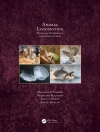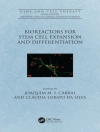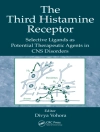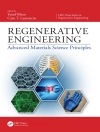This book, which is the first volume of Biomedical Translational Research, summarizes emerging technologies in healthcare. The book reviews the advancements in biomedical sciences in genomics, immunology, stem cell, tissue engineering, nanotechnology, computational and structural biology, biomedical engineering, and telemedicine biology. The book highlights the applications of artificial intelligence in the diagnosis of infectious diseases and examines the role of system biology approaches for understanding human complexity, variability, and its influence on health and diseases. It presents the applications of flow cytometry in monitoring the progression and treatment of disease. It covers emerging technologies in cancer research, including CRISPR-Cas9, NGS, and nanotechnology. This book is a useful source of information for clinical researchers, basic scientists, biomedical engineers, and computational biologists.
Inhoudsopgave
Chapter 1. Introduction to emerging technologies in biomedical sciences.- Chapter 2. Bioprospecting : boon or curse.- Chapter 3. Growing need for interdisciplinary biomedical research .- Chapter 4. Interplay between theory and experiment : a future approach for biomedical research.- Chapter 5.past, present and future perspectives of biomedical innovation in india.- Chapter 6. Systems biology approaches to study disease comorbidities.- Chapter 7. Bioinformatics the interactome of multidisciplinary approaches.- Chapter 8. Role of artificial intelligence in diagnosis of infectious diseases.- Chapter 9. Dna digital data storage breakthroughs in biomedical research. Chapter 10. Biomedical applications cloud-based iot.- Chapter 11. Next generation sequencing in cancer research.- Chapter 12. Crispr: genome editing and beyond.- Chapter 13. Omics in tuberculosis diagnosis : today and tomorrow.- Chapter 14. Advances in proteomic approaches for chronic kidneydisease.- Chapter 15. 3 d bioprinting of tissues and organs : a new paradigm in regenerative medicine and biomedical engineering.- Chapter 16. Virtual planning, rapid prototyping and 3-d printing in orthopedic surgery.- Chapter 17. Tissue chips: contemporary applications and advancementstissue chips: contemporary applications and advancements.- Chapter 18. Flow cytometry for measuring neutrophil function.- Chapter 19. Flow cytometer for understanding genome size variation among medicinal herbs and non-edible oil trees of northeast india.- Chapter 20. Raman spectroscopy applications for bacterial detection.- Chapter 21. Microfluidic point-of-care diagnostic devices: a contemporary relevance. Chapter 22. Fluorescent dots for breast cancer management.- Chapter 23. Molecular mimicry : unravelling the role of autoantibodies in autoimmune diseases and infertility.- Chapter 24. Strategies of vaccine development.- Chapter 25. Preclinical models of intimal hyperplasia and restenosis to predictclinical events and develop novel therapies.- Chapter 26. Sphingolipids : a roadmap from biomarker identification to clinical application.- Chapter 27. Future of gastrointestinal endoscopy.- Chapter 28. Beating heart in a box : the future of cardiac transplant.- Chapter 29. The journey of coronary stent technology.- Chapter 30. Materiovigilance in clinical surgery.
Over de auteur
Professor Ranbir Chander Sobti is an Emeritus Professor and Indian National Science Academy (INSA) senior scientist at Punjab University. He is a former Vice-Chancellor of the Panjab University, Chandigarh & Babasaheb Bhimrao Ambedkar University (Central University), Lucknow. He started his career as a cytogeneticist and then moved on to molecular biology, including genomics, to understand the susceptibility and disease process of cancer, COPD, AIDS metabolic syndrome, and kidney diseases. He has also used stem cells and nanoparticles to understand the process of tissue organ development through a designed de-cellularization protocol. He has published more than 300 research articles in the journals of international repute and has also published more than 40 books.
He is a Fellow of the Third World Academy of Sciences, National Academy of Sciences India, Indian National Science Academy, National Academy of Medical Sciences, National Academy of Agricultural Sciences, Canadian Academy of Cardiovascular Diseases and few others. He was the General President of the Indian Science Congress for the 102nd session held at the University of Jammu in 2013. Dr. Sobti is the recipient of many prestigious awards like the INSA Young Scientist Medal, UGC Career Award, Punjab Rattan Award, JC Bose Oration and Sriram Oration Awards and of Life Time Achievement Awards of the Punjab Academy of Sciences, Zoological Society of India, and the Environment Academy of India.
Aastha Sobti, BDS (PU) Master of Clinical Dentistry Oro and oro-maxillofacial surgery (UK) is working in the field of head and neck cancers using oral and maxillofacial surgery background by delving her intellect to it. In entirety aiding in the field to bring reforms that are required in the present multifarious surgical as well as research areas.
In her teaching and research career of 7 years she has contributed to the research field by publishing papers in reputed journals. She has been awarded number of prizes and medals for her exceptional work. She has attended and presented papers in international conferences in Croatia, Brazil, Canada, USA, Japan, Switzerland and various other countries.












